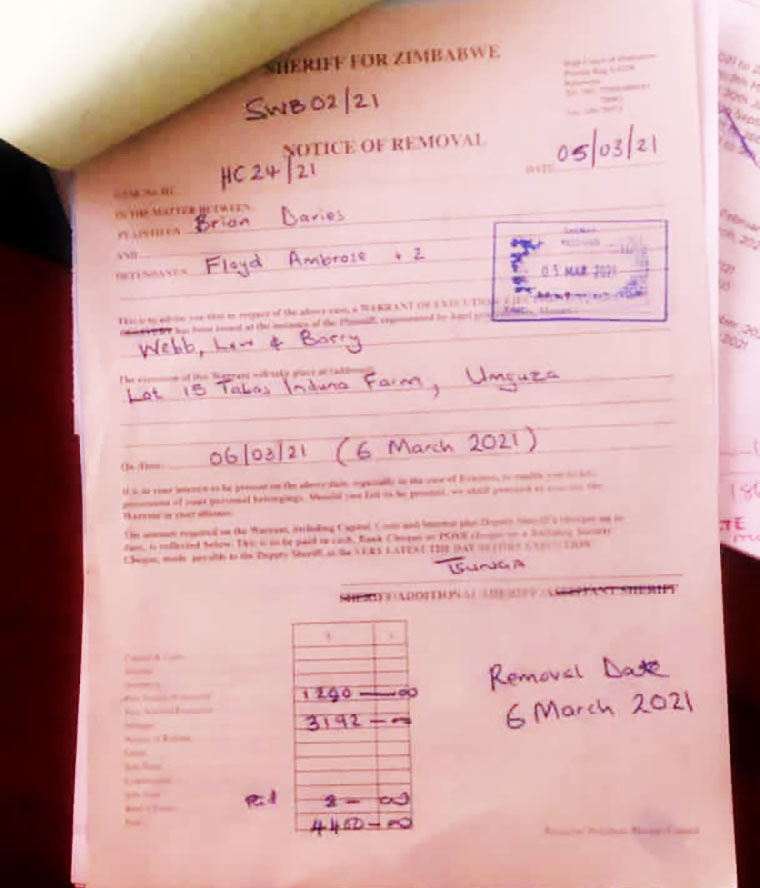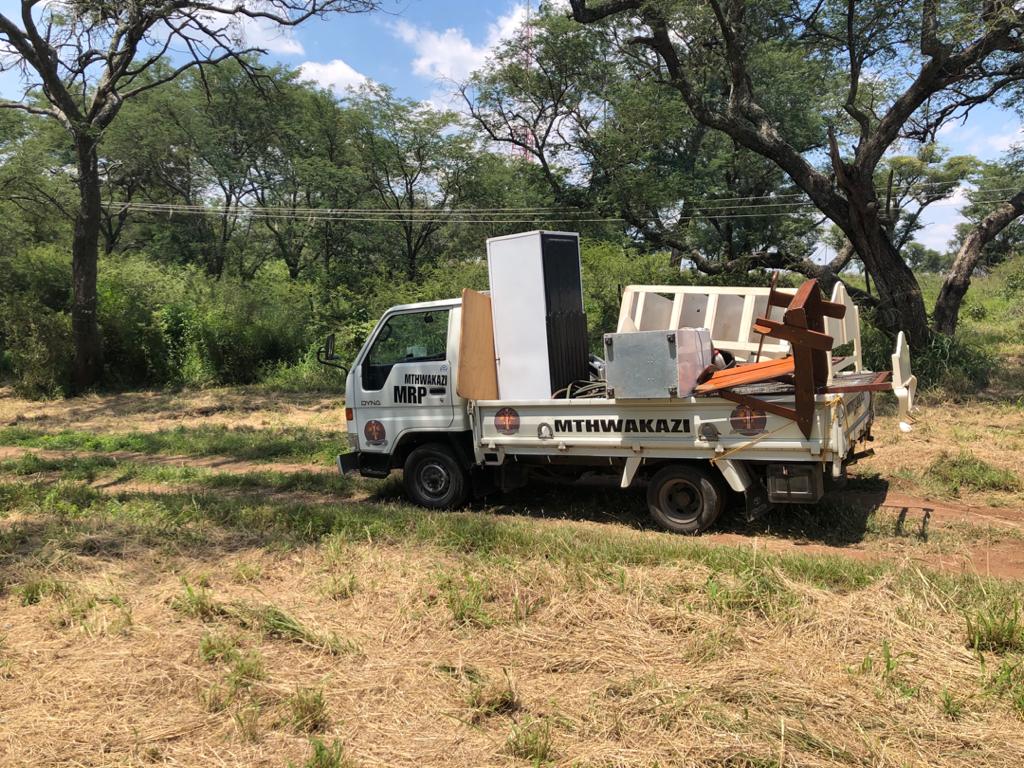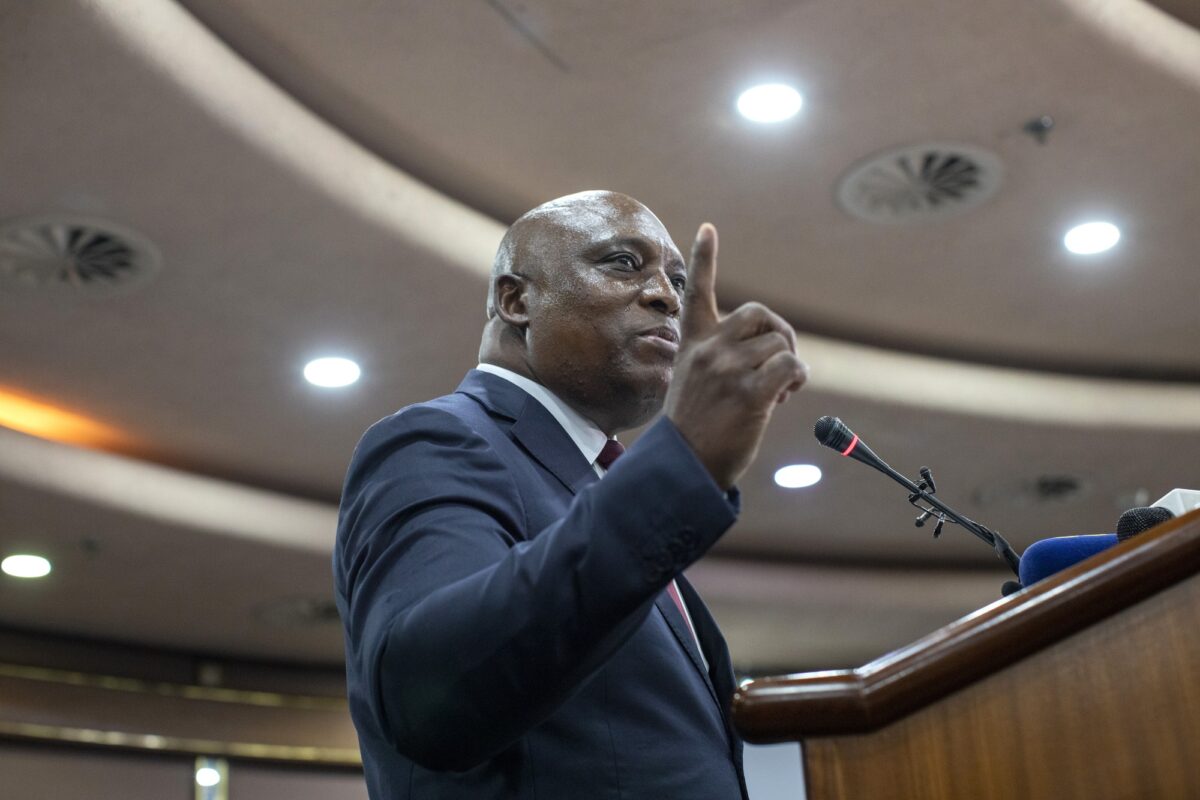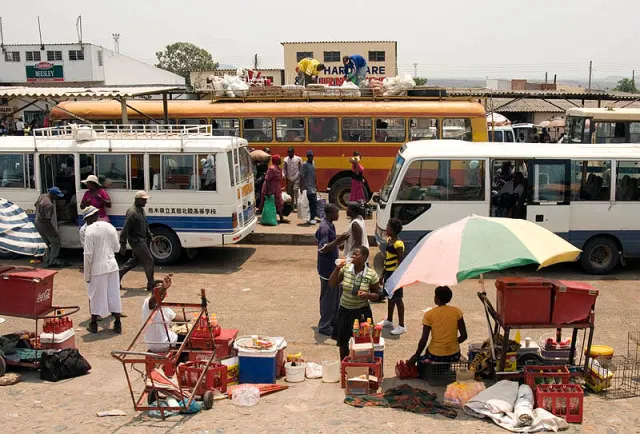BULAWAYO – A white farmer thrown out of his property by the son-in-law of former Vice President Kembo Mohadi was assisted back onto his farm in Ntabazinduna by the Mthwakazi Republic Party (MRP) on Monday.
Police were called after Floyd Ambrose, a mixed-race former employee of the farmer Brian Davies, allegedly fired gun shots in the air to scare off the political activists who arrived in a truck which they used to remove his movable property.
Ambrose evicted Davies last week and dumped his property in the open. But a court on March 5 ruled against Ambrose and directed the Sheriff of the High Court to remove him from the property.
Police and the Sheriff had not acted by Monday when about 45 members of the MRP led by their leader Mqondisi Moyo arrived at Tabas Induna Farm to evict Ambrose.
“We evicted Ambrose who took advantage of the fact that he is an in-law to the former Vice President Kembo Mohadi,” Moyo told ZimLive.
“The High Court has granted relief in favour of Davies more than three times, but Ambrose refused to vacate the farm threatening Davies that he was Zanu PF and untouchable.
“We then considered to intervene and assist Davies who has been working so well with the community of Ntabazinduna. The law shouldn’t be applied selectively whereby if a court rules against a member of Zanu PF that person uses his political muscle not to abide by the court ruling.”

The dramatic arrival of the MRP members saw Ambrose and some of his workers flee into the bushes. At least two shots were fired allegedly by the fleeing Ambrose.
Ambrose later returned to the farm with armed police from Queens Park Police Station in Bulawayo. Some of Ambrose’s employees rode in a van with police, armed with machetes which were quickly seized by the MRP members.
A senior police officer who spoke to Moyo apologised, stating that he had not realised Ambrose’s employees were armed. The police listened to the MRP group who were carrying Davies’ High Court order, while Ambrose could not produce court documents allowing him to stay on the land.
Police later drove off, leaving the activists at the farm.
Ambrose was employed by Davies and his wife Carol Parsons on what was once Zimbabwe’s biggest poultry farm. Carol’s grandfather, Jack Parsons, founded Colcom after acquiring the farm in 1953.
Ambrose left his employment in 2014 and returned in April 2019 with documents from Umguza Rural District Council granting him ownership of the farm. Davies and his wife challenged their attempted eviction.
At the height of the wrangle in 2019, Chief Nhlanhlayamangwe Ndiweni of Ntabazinduna castigated the attempts to evict Davies, stating: “This eviction does not have any high moral ethos or political ideology attached to it at all, but has everything to do with corruption and basic thuggery.”
Ndiweni went on to appeal for harsher Western sanctions on President Emmerson Mnangagwa’s regime as a measure to compel the reversal of the unpopular eviction.
Moyo said the MRP’s intervention was prompted by their desire to restore sanity and territorial integrity which had been eroded by the politicised land reform programme.
“We are intervening to say we are now there to restore sanity to our territories and on the other hand you will observe that the Zimbabwe constitution and Traditional Leaders Act clearly states the custodians of the land are the chiefs, kraal heads, and the village headmen,” Moyo said.
“It is so disappointing that Zanu PF always wants to politicise the land issue and in this case wants to give the land to its member. As MRP we say no to that.”
The Davies family played a pivotal role in the preservation of the Ndebele culture. With the permission of the late Chief Khayisa Ndiweni, they built Chief’s Lodge on the top of Ntabazinduna Hill, a famous historical site that is important in Ndebele culture.
“The Davies family agreed with late Chief Khayisa Ndiweni and the current Chief Nhlanhlayamangwe Ndiweni to modify Ntabazinduna lodge so that it becomes a tourist attraction centre. Ntabazinduna has some serious cultural significance, more than 120 of King Lobhengula’s chiefs died in those mountains fighting against the settler invasion in 1893,” Moyo added.















